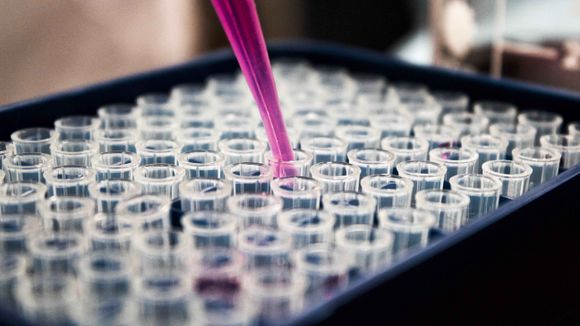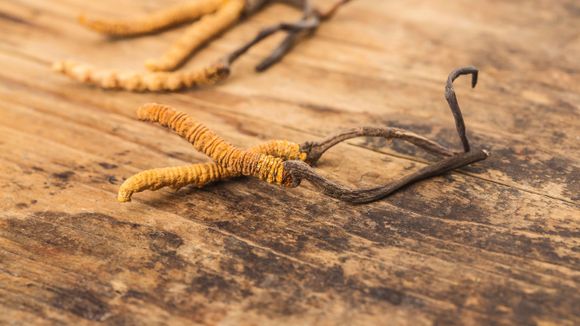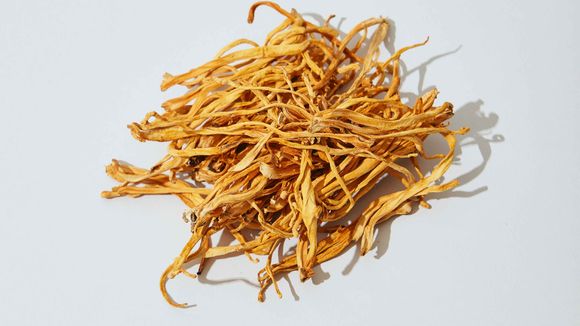The scientifically proven benefits of cordyceps mushrooms
There are many species of Cordyceps around the world. Although technically not fungi, they have the rare distinction of being entomopathogenic fungi, which means that in nature they grow as parasites on insects. The two species, Cordyceps militaris and Cordyceps sinensis, have gained considerable attention from the medical community and have been extensively studied for their positive health effects.
In traditional Chinese and Tibetan medicine, cordyceps has been highly valued as a natural elixir of vitality and vitality that helps fight disease, improves endurance and increases longevity. Tibetan shepherds working at high altitudes took cordyceps to cope with the effects of low oxygen.
To date, we know that cordyceps has beneficial effects on the human body, which may include immune, antitumor, antimetastatic, antioxidant, anti-inflammatory, antimicrobial, hypolipidemic, hypoglycemic, anti-aging, and neuroprotective effects. 1
The active ingredients of cordyceps are as follows:
- Cordycepin
- Polysaccharides
- Sterols
- Fatty acids
- Phenolic compounds
Alternative names also used: Cordyceps sinensis, Cordyceps sobolifera, Cordyceps barnesii, Cordyceps hyphae, Cordyceps ophioglossoides, Cordyceps militaris, caterpillar mushroom, cordyceps mushroom.
Cordyceps May Improve Physical Condition

In one study, scientists tested the effects of cordyceps on physical condition. The researchers found that the group given the most of the cordyceps-containing product had improved lactate clearance due to improved energy metabolism of lactate in the cell. [ref. 1] Hence the authors concluded that the use of this formula of C. sinensis will improve lactate clearance and allow athletes higher anaerobic physical performance.
Another study found that a one-time supplement with a mushroom blend containing Cordyceps militaris may improve tolerance to high-intensity exercise. It is assumed that there will be greater benefits with prolonged intake of a supplement with Cordyceps militaris.
Cordyceps improves oxygen consumption
Studies have shown that in addition to the ability of the cordyceps mushroom to improve the availability of oxygen in the blood, it helps maintain heart function and respiratory health. The researchers reported that a 28-day experience with cordyceps administered during high-intensity exercise had benefits for both aerobic and anaerobic outcomes, improving oxygen consumption and blood lactate levels. 3
Cordyceps as an anti-aging agent
Older people have traditionally used cordyceps to reduce fatigue and increase strength and libido. Researchers believe their antioxidant content may also explain the anti-aging potential of cordyceps mushrooms.
Several studies have found that Cordyceps increased antioxidant levels in adult mice, helping to improve memory and sexual function. 3 It is necessary to investigate what the effect will be in humans.
In another study, cordyceps extended the life of fruit flies, further supporting the belief that they have an anti-aging effect. 4
Potential antitumor effects of cordyceps

The potential of cordyceps to slow down tumor growth has aroused considerable interest in recent years. Any means in the fight against cancer is of utmost importance to be studied and checked for the effectiveness of this disease in different types of cancer. 5
Researchers believe that cordyceps mushrooms may exert antitumor effects in several ways. In vitro studies, cordyceps have been shown to inhibit the growth of many types of human cancer cells, including lung, colon, skin and liver cancers. 6
Cordyceps can also reverse the side effects associated with many forms of cancer treatment. One of these side effects is leukopenia. It is important not to be confused with cancerous leukemia!
Leukopenia is a condition in which the number of white blood cells (leukocytes) decreases, lowering the body's defenses and increasing the risk of infection.
One study tested the effects of Cordyceps on mice that developed leukopenia after irradiation and chemotherapy treatment. Interestingly, cordyceps prevents leukopenia. These results suggest that mushrooms may help reduce the complications associated with some forms of cancer treatment. 7
Cordyceps May Help Manage Type 2 Diabetes
Cordyceps contains a special type of sugar that can help in the treatment of diabetes. Diabetes is a disease in which the body either does not produce or does not respond to the hormone insulin, which normally transports sugar glucose into your cells for energy.
When your body doesn't produce enough insulin or doesn't respond well to it, glucose can't enter the cells, so it stays in the bloodstream. Over time, too high a level of glucose in the blood can cause serious health problems.
Interestingly, cordyceps can keep blood sugar levels within healthy limits by mimicking the action of insulin. In several studies in mice with diabetes, cordyceps has been shown to reduce blood sugar levels. It is important to investigate whether the same effect is achievable in humans. 8
Cordyceps to support the kidneys

Some evidence suggests that the medicinal cordyceps mushrooms may also protect against kidney disease, which can be a complication of diabetes.
In an analysis of 22 studies involving 1,746 people with chronic kidney disease, those who took cordyceps supplements had improved kidney function. 9
Cordyceps May Have Heart Health Benefits
With more research emerging on the effects of cordyceps on heart health, the benefits of mushrooms are becoming more apparent. In fact, cordyceps is an approved remedy in China for treating arrhythmia, a condition in which the heart rate is too slow, too fast, or incorrect.
A study found that cordyceps significantly reduced heart damage in rats with chronic kidney disease. Heart damage from chronic kidney disease is thought to increase the risk of heart failure, so reducing these impairments may help avoid complications.
Researchers believe that this effect is due to the content of adenosine in the cordyceps. Adenosine is a natural compound that has cardioprotective effects (protecting the heart).
How to take the medicinal mushroom cordyceps
There is currently insufficient evidence to suggest a standard dose for cordyceps. Dosage varied considerably in studies looking at cordyceps intake. For example, studies on athletic performance have used doses ranging from one gram to 4.5 grams daily. In some animal studies, the dosage ranged from three grams per day to 10 grams per kilogram of body weight per day. 10
Therefore, our advice is to always consult a medical professional before taking a supplement to make sure the supplement and dosage are right for your individual needs.
The following groups should avoid taking cordyceps supplements:








